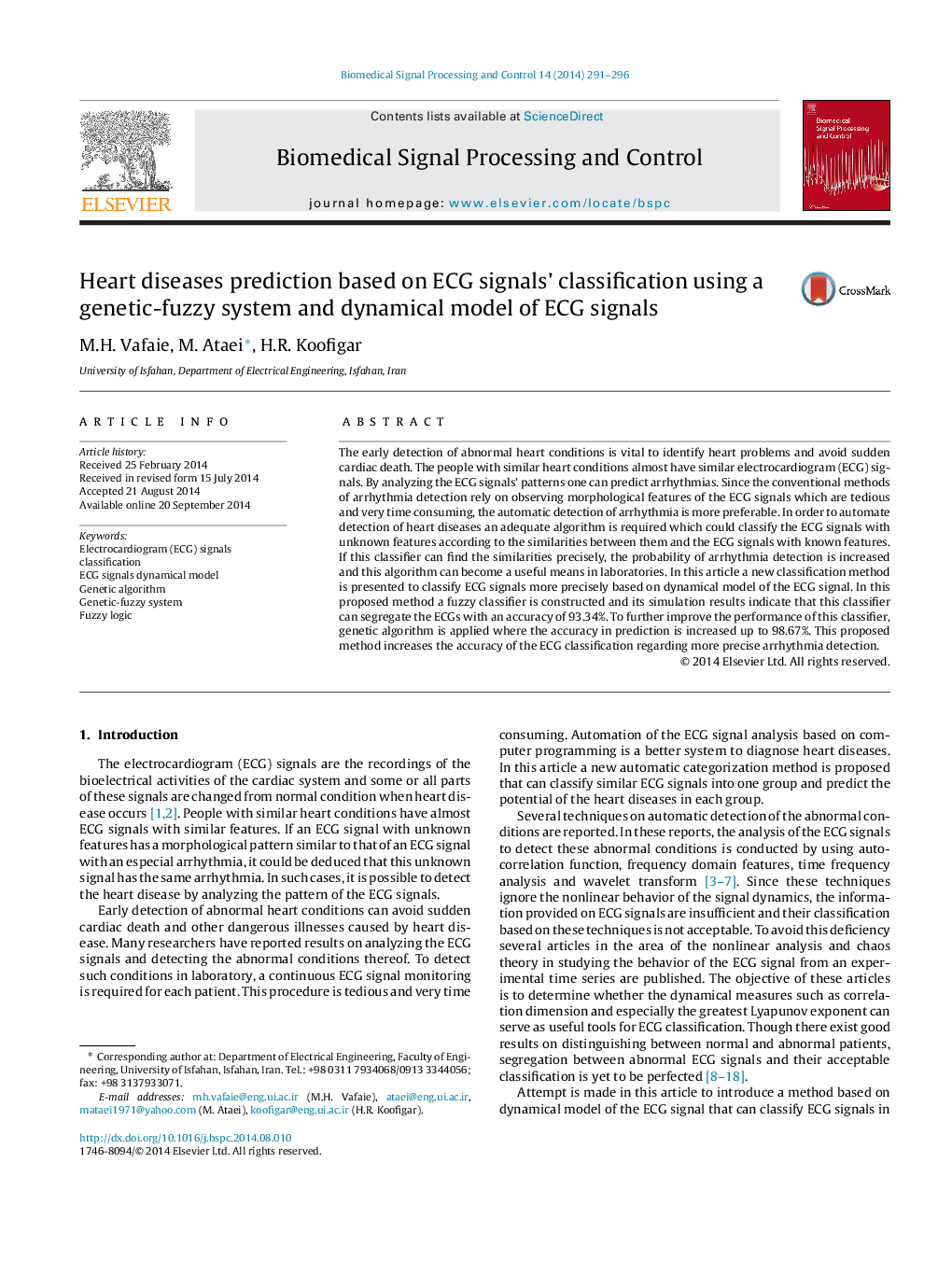| کد مقاله | کد نشریه | سال انتشار | مقاله انگلیسی | نسخه تمام متن |
|---|---|---|---|---|
| 558028 | 1451666 | 2014 | 6 صفحه PDF | دانلود رایگان |

• We use a set of three differential equations as a dynamical model of ECG signals.
• We analyze the changes occurred in the ECG model parameters due to arrhythmias.
• Two classifiers are constructed to classify ECG signals according to the parameter changes.
• Classifiers can identify similarities between ECGs and segregate them using these similarities.
• We predict heart condition of clinically obtained ECGs more precisely through these classifiers.
The early detection of abnormal heart conditions is vital to identify heart problems and avoid sudden cardiac death. The people with similar heart conditions almost have similar electrocardiogram (ECG) signals. By analyzing the ECG signals’ patterns one can predict arrhythmias. Since the conventional methods of arrhythmia detection rely on observing morphological features of the ECG signals which are tedious and very time consuming, the automatic detection of arrhythmia is more preferable. In order to automate detection of heart diseases an adequate algorithm is required which could classify the ECG signals with unknown features according to the similarities between them and the ECG signals with known features. If this classifier can find the similarities precisely, the probability of arrhythmia detection is increased and this algorithm can become a useful means in laboratories. In this article a new classification method is presented to classify ECG signals more precisely based on dynamical model of the ECG signal. In this proposed method a fuzzy classifier is constructed and its simulation results indicate that this classifier can segregate the ECGs with an accuracy of 93.34%. To further improve the performance of this classifier, genetic algorithm is applied where the accuracy in prediction is increased up to 98.67%. This proposed method increases the accuracy of the ECG classification regarding more precise arrhythmia detection.
Journal: Biomedical Signal Processing and Control - Volume 14, November 2014, Pages 291–296